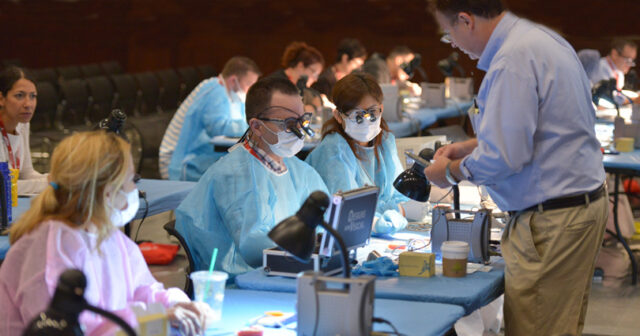Continuing Education (CE) is a vital part of the practice of dental medicine. It helps you maintain a high standard of professionalism in your dental career and enhances your ability to meet patients’ needs and expectations. There are several ways to ensure you receive quality CE.
Aesthetic dentistry
Aesthetic dentistry is a branch of dentistry that deals with the aesthetic improvement of teeth. Dental continuing education courses are designed to help dentists achieve a better understanding of the techniques, materials, and procedures involved. These activities can contribute to the improvement of their practice and to their personal development.
Aesthetic dentistry is gaining popularity as a form of dental continuing education. New technology is being used to enhance the appearance of teeth.
Continuing education activities have evolved from purely lecture-based to more hands-on learning. It is important to ensure that the CE course you choose is appropriate for your needs and interests.
In a previous study, it was found that the most preferred CE subject was restorative dentistry. However, this may not necessarily be the case.
Public- and patient-focused approach to prevent oral diseases
Oral diseases are common health problems and are caused by a variety of modifiable risk factors. They can cause oral pain, discomfort, and even disfigurement. However, they are also preventable. This can be accomplished through public health interventions.
The most prevalent oral diseases are dental caries and periodontal disease. These two conditions affect close to 3 billion people worldwide. A study by the World Health Organization (WHO) shows that nearly one in four adults in the United States has at least one of these conditions.
Oral health care is essential to an overall healthy lifestyle. However, there are still many inequalities in access to care, treatment, and prevention. Therefore, oral healthcare systems must be more accessible and financially fair. Moreover, oral health services must include comprehensive oral health promotion in schools and workplaces.
Barriers to participating in CE activities
Continuing education is a key element in promoting the development and longevity of professional dental practitioners. By obtaining new knowledge and skills, dentists can improve the quality of oral care they provide.
Despite its importance, the literature does not offer any comprehensive study on the barriers to participating in CE activities. It is not uncommon for dental practitioners to attend CE events for various reasons, including career advancement, career improvement, and personal learning needs.
A survey was conducted on general dentists, specialists, consultants, and public and private sector employees. Survey respondents were asked to complete a questionnaire using four-point Likert responses. The responses were used to determine the reasons for attending CE activities in the last year.
The study found that the most common reason for attending CE activities as career development. Most dentists attended CE activities to enhance their professional skills and fulfill their personal learning needs. Some dentists also took advantage of their free time to improve their clinical skills.
ADA CERP-recognized providers
Whether you are looking to expand your dental skills or improve your practice, ADA CERP-recognized providers can help you find the education you need. They offer courses 24 hours a day, seven days a week. And, you can take classes online.
When choosing a course, you should check the ADA CERP-recognized provider’s website. If you cannot find the information you need, contact the organization’s headquarters for more information.
Continuing Education Provider Recognition Program (CERP) provides quality assurance for oral health professionals. It promotes continuous improvement in continuing education and assists in identifying quality providers of continuing dental education. The ADA’s CERP program is overseen by the Commission for Continuing Education Provider Recognition (CCEPR).
CERP is an excellent resource for dental professionals who are looking to keep up with the latest developments in their field. It is designed to provide an easy way to find CE programs. But, it is important to note that ADA CERP does not endorse the content of individual courses. Instead, it is intended to ensure that the training you receive is up-to-date and reflects the latest research and procedures.
Continuing education in Alabama
Continuing medical education (CME) has become an important part of Dental Continuing Education for healthcare professionals. While the concept is widely recognized, very few studies have investigated how attendees perceive CME. A survey questionnaire was distributed among medical doctors, dentists, and other health professionals in Saudi Arabia. The data were analyzed using multivariate logistic regression analyses.
Dental schools in Alabama have recently emerged. However, their establishment and growth require collaboration between the dental colleges and other stakeholders. There are many dental colleges in Saudi Arabia, but only a few have postgraduate programs. Therefore, there is a great need to open new opportunities for students. Several changes have occurred in the dental curricula in response to COVID-19. These modifications are based on the policies, guidelines, and quality concerns of the colleges.









